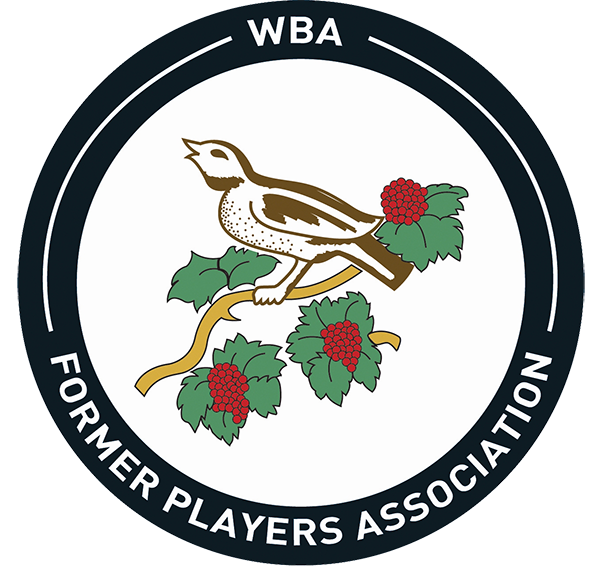As the refrains of ‘Auld Lang Sine’ died away on New Year’s Day 1970 manager Alan Ashman would have been preparing his players for a trip north to Sheffield to play Sheffield Wednesday in the third round of the F.A Cup at Hillsborough on Saturday 3rd January 1970 with the painful memories of Albion’s last visit to Owlerton for the F.A Cup Semi-Final clash with Leicester City in March still fresh in their minds and hurting, those hopes of another F.A Cup Final appearance dashed by a boyhood Albion fan, Leicester City striker Allan Clarke who grabbed a heart wrenching winner for the ‘Foxes’ with just a few minutes of a very poor Semi-Final remaining.





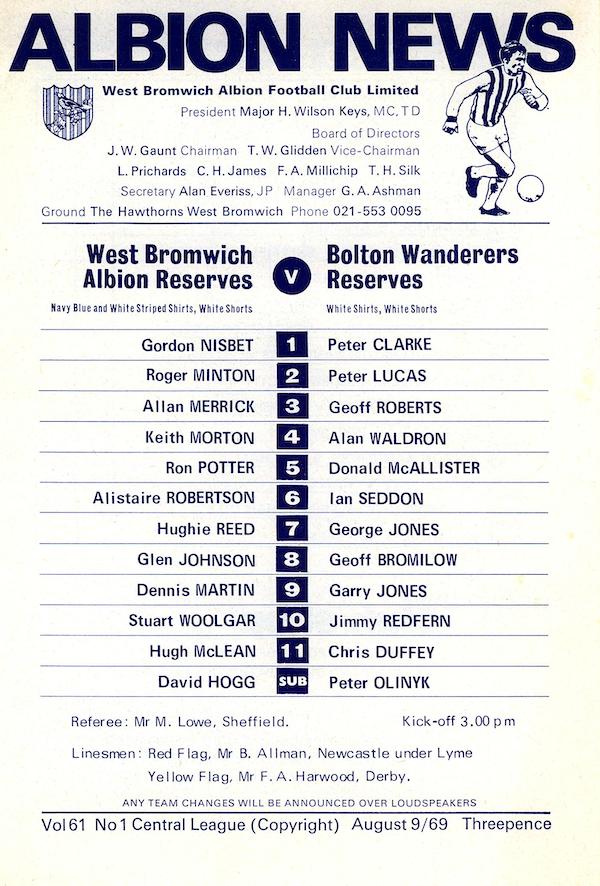

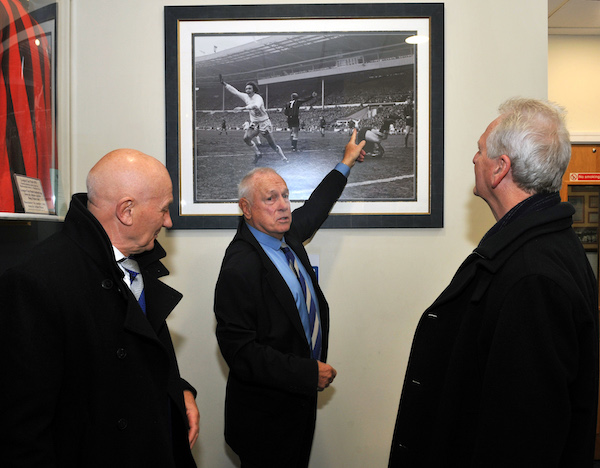
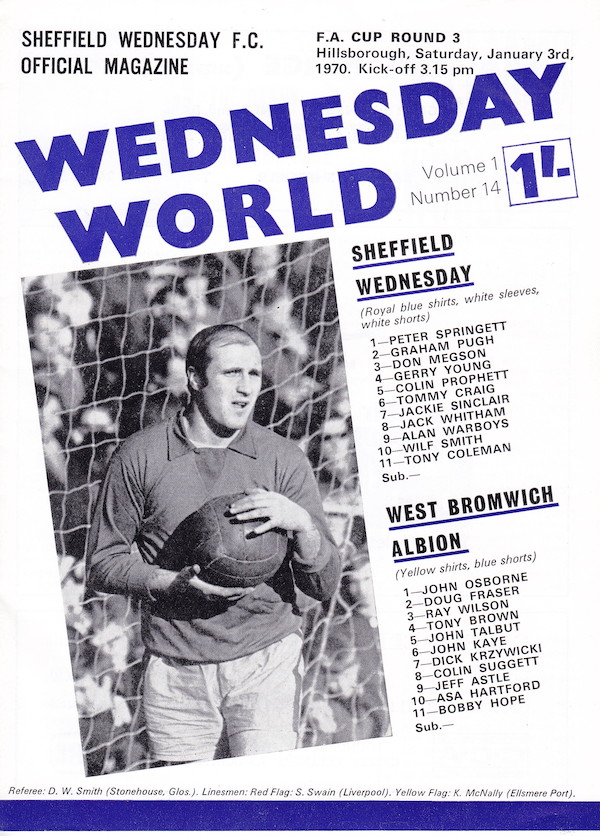

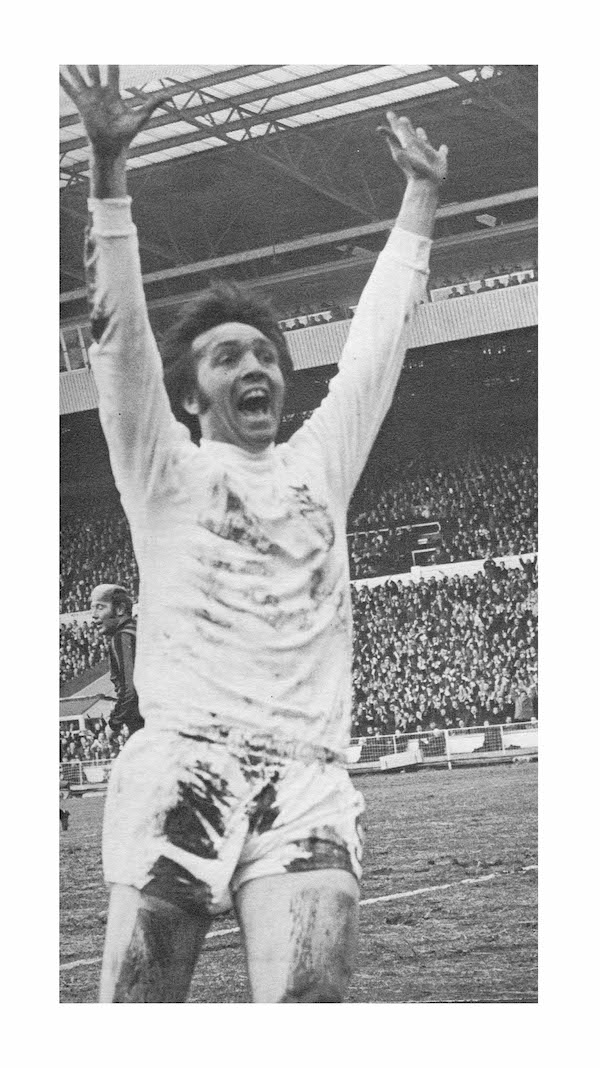
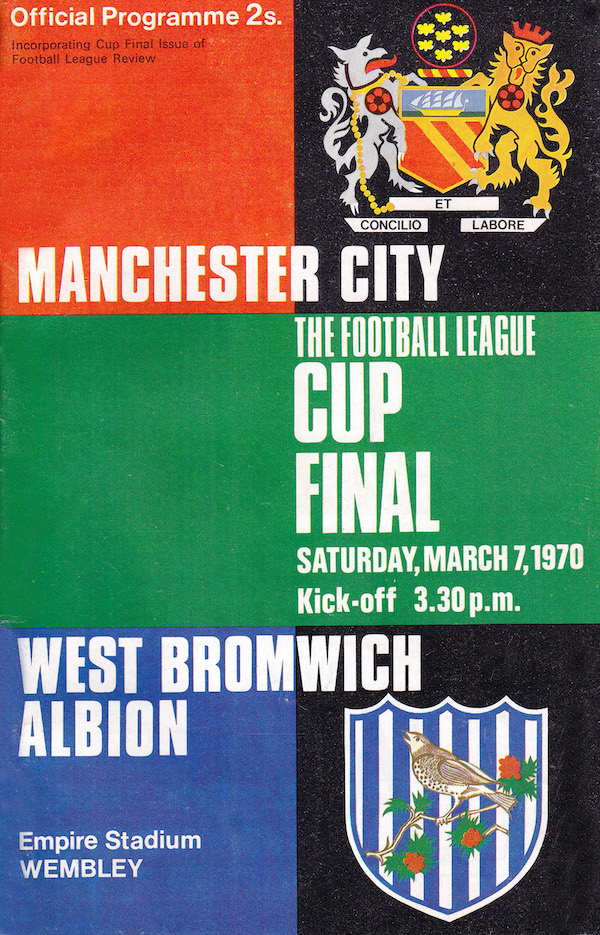
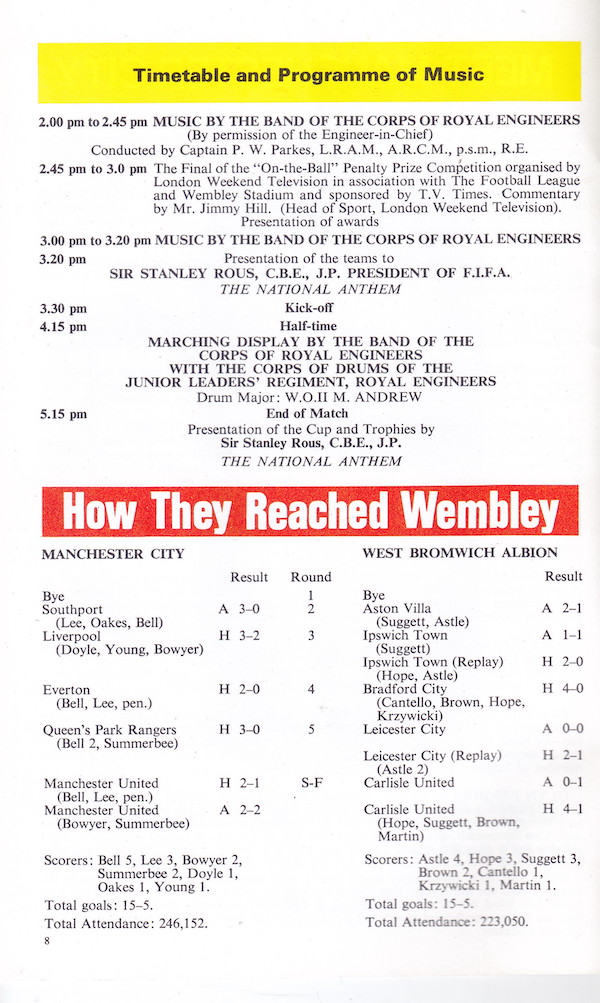

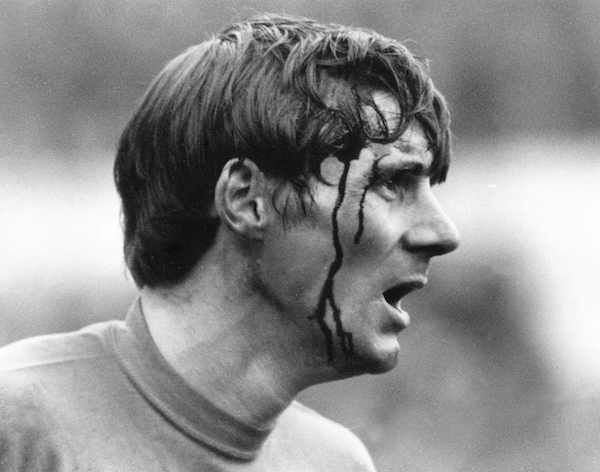
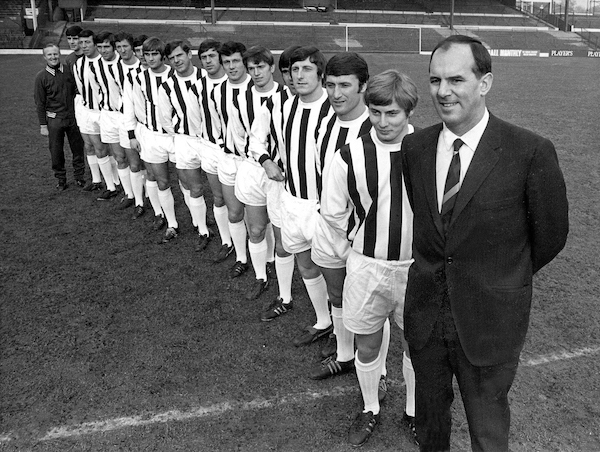

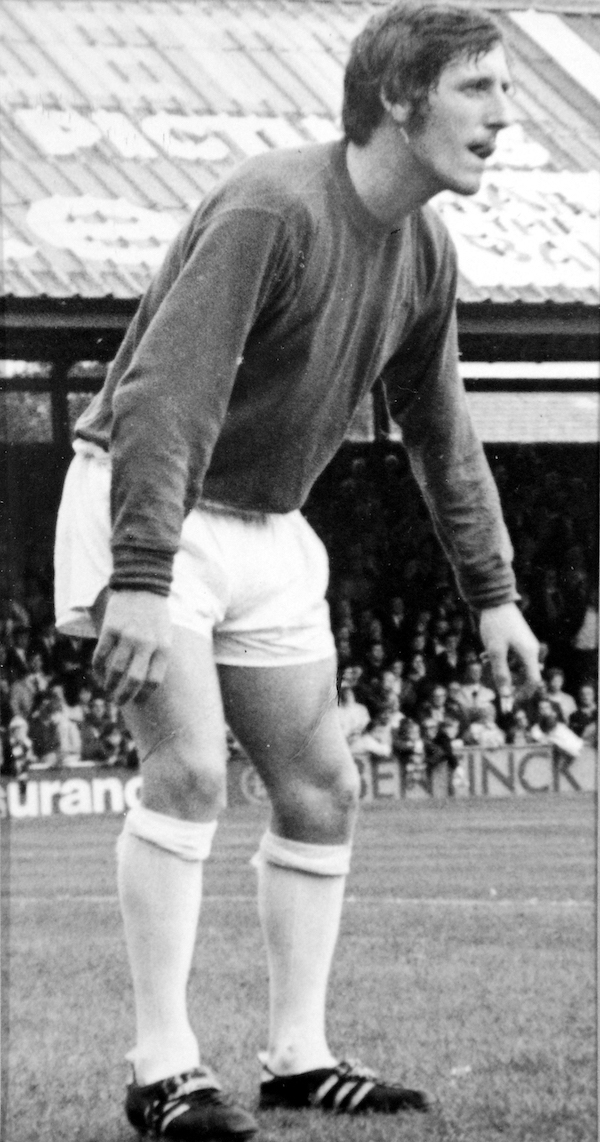




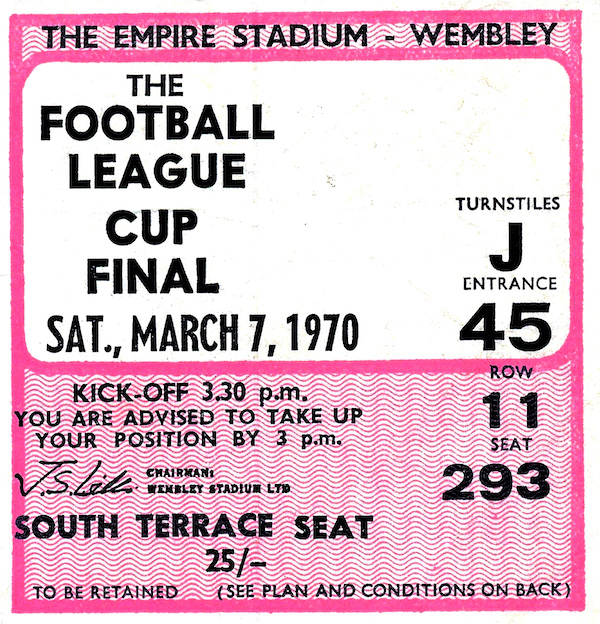

John Kaye and Doug Fraser had both recovered sufficiently following those injuries sustained just after Christmas, to take their places in the Albion line up to face the ‘Owls’ but the hugely influential Bobby Hope just didn’t recover in time and that in many ways proved to be the deciding factor in any hopes manager Ashman and his team had of progressing to the fourth round, Wednesday coming from behind to beat the travelling ‘Throstles’ 2-1, which was perhaps sweet revenge for the ‘Owls’ who had been beaten 3-0 by Albion at The Hawthorns back in November. The game however will always be remembered by fans of a certain age, for one of the finest goals ever scored in the competition, by Albion’s all-time legend Tony Brown, something I will expend upon later in this chapter. It would also be a year that would see Tony take his unaccustomed place between the ‘sticks’ at Bloomfield Road, Blackpool when John Osborne was taken off injured.
Sadly out of the F.A Cup very true, but still with a date at Wembley to look forward to, with Manchester City on 7th March 1970, Albion’s form having returned too, a brilliant Jeff Astle hat trick being far too good for Crystal Palace the week after their disappointing cup defeat at Hillsborough. Tony Brown continually in the thick of the action, grabbed an equaliser the following week at Anfield and struggling Sunderland were put to the sword by Messrs Brown and Astle on January 27th, four days before a fantastic morale boosting 3-0 win over Albion’s League Cup Final opponents Manchester City at the Hawthorns. The fact that Albion totally outplayed the men from Manchester, and on another day could have put six past England goalkeeper Joe Corrigan, really bouyed everyone at the club, the fans the players and the local press who were doing everything they could to keep the cup excitement on the ‘burner’ with all of the main broadsheets and tabloids covering the forthcoming March League Cup Final with colour ‘specials’ and daily interviews with Albion players. For sure, if football matches could be won on paper, then the Albion board already had the Football League Cup where it belonged, in the board room trophy cabinet.
Unfortunately as we know, games are certainly not won in that way, and as the combatants of both teams came out of their Wembley dressing rooms to examine the pitch, their hearts must have sank. The once beautiful bowling green surface had been transformed into something that resembled a horse sanctuary somewhere in the Yorkshire Dales, rather than a beautiful haven for football, it was awful. Snow that had fallen all over the United Kingdom, not just London, was banked up around the perimeter of the pitch with the sand bags and straw clearly visible all the way around the running track and most importantly a patched up muddy playing surface, destroyed by trampling horses involved in the ‘Horse of the Year’ show a week before, and certainly not relayed as it certainly should have been before the game, the pitch nowhere good enough for a game of classic football that was expected from two of the best sides in the land, with everyone expecting a ‘feast of football’ on the usual Wembley carpet.
Well, do you know what, despite the awful conditions, they did get that ‘Feast of football’ It may not have been on a carpet, but it was a cracking match, one of the great League Cup Finals, that everyone packed into the stadium, lucky enough to get a ticket will remember for the remainder of their football days.
The game started with a theme of physical aggression, which really went well with the war zone terrain that the Wembley pitch certainly resembled, and after just five minutes it as the City defence that the first unforced errors of the day. They twice failed to clear a Bobby Hope corner, the second ‘half clearance’ went staright back to Albion left back Ray Wilson, who crossed right onto Jeff Astle’s head, and with the City ‘keeper Joe Corrigan clutching at thin air Astle did what he did best and diverted the ball into the City net. It was a bit of summary justice for the Albion striker who City defender Tommy Booth had unsuccessfully tries to ‘drop kick’ into the Royal box in the first five minutes of the game. It was also a ‘moment in time’ that Ray Wilson will never forget, and he quite rightly is immensely proud of his part in Astle’s opener, indeed his joy is there for all to see in the framed celebration photograph that is displayed on the first floor landing in the East stand complex at The Hawthorns.
Five minutes later Albion ‘keeper John Osborne had his head ripped open by an errant City players boot, the men from Maine Road certainly not playing by the ‘Marquis of Queensbury’ rule book and for the remainder of the half Osborne would hold a blood soaked foam sponge against his wounds which he was forced to drop into the Wembley mud with every City attack, which was by this time quite often as the men from Manchester attempted to get themselves back into the match.
Joe Corrigan saved brilliantly at the feet of Jeff Astle when the Albion striker seemed certain to score, then City came back strongly with skipper Book and wing half Oakes prompting attack after attack on the still struggling Osborne’s goal. Unfortunately the equaliser had to come with the pressure that the City forwards were putting on Osborne and the rest of the Albion defence, and any Albion fan in the stadium that day had without doubt lived on a knife edge since Astle had given their side the lead. Doyle it was that got City back level, making up for his poor clearance that led to Albion’s opener. On the hour Pardoe swung in a corner, which the Albion defence failed to clear and the ball fell to the feet of Doyle who smashed the ball into the net past Osborne’s despairing dive.
It was now ‘Game on’ for the winner and the last ten minutes of this absorbing affair were definitely not for the feint hearted, especially if you came from West Bromwich. Striker Astle, was on two or three occasions involved in scuffles and altercations with City players, including Doyle and Booth and ended up in the referees little black book along with Doyle. However, you can hardly blame Astle for retaliating, the treatment that he was getting from the City defenders was not pretty, but I guess that’s football.
Then perhaps came the most heart-stopping moment of the game, if you were an Albion fan anyway. With minutes of the ninety remaining, Colin Suggett so nearly won the game for Albion when his spectacular shot crashed against the crossbar with Joe Corrigan once again clutching at thin air. No sooner had the big keeper cleared up-field than the final whistle went, and the twenty two tired and bedraggled ‘warriors’ prepared for another half an hours combat in the sand dunes of Wembley.
It would unfortunately be an extra time of woe for the Albion players who had quite simply given their all, whereas in 1968 it had been an extra time of joy. Not one of the muddied men in white shirts had however left anything out on the pitch, and as a fan you can ask no more, as they watched their heroes drag themselves off the pitch and disappear into the dressing room, after Glyn Pardoe had settled the match with his late extra time winner for City. The Albion players to a man every reason to keep their heads held high after a wonderful effort in very testing conditions.
City’s excellent if fortuitous win completed a superb hat trick of English honours for the men from Manchester, the League Championship, the F.A Cup and now the League Cup. For Albion, well they hadn’t done too badly either, reaching four major finals in four years, three of them at Wembley. I can’t help thinking that Billy Bassett, Harry Keys, Fred Everiss and Major Keys were all up ‘there’ looking down on these latest Hawthorns heroes with more than a little tear in their eyes.
In the build up to Wembley, Albion’s league form dramatically dropped off following the League win over Manchester City, with successive defeats at Newcastle and Leeds. Hammered 5-1 at Elland Road, at least victory at struggling Southampton the following week would help to repair morale in time for the all-important ‘Hawthorns leg’ of the ‘Staffordshire derby’ against Wolverhampton Wanderers, which as an entertainment spectacle was probably the best game of the season at the Hawthorns, a six goal thriller with points shared, in front of 37,000 plus appreciative fans. Only the visit of Manchester United in October had attracted a larger audience.
After Wembley things did not improve for the ‘Throstles’, with just six points gained from a possible eighteen and just two wins against Chelsea and Nottingham Forest, the latter, the biggest win of the season 4-0. Albion would also slump to their biggest defeat of the season 7-0 at Old Trafford, their biggest defeat in fact since 16th March 1963 when Staffordshire neighbours Wolves recorded the same score-line over the ‘Throstles’ the week after the great Derek Kevan moved tearfully to Chelsea.
Disappointedly, as I have already touched on, it would not be Albion’s year in the F.A Cup either after two years of tremendous success in this wonderful old competition the ‘Throstles’ would bow out at the first hurdle against Sheffield Wednesday at Hillsborough against unfancied opposition it has to be said, who would be relegated at the end of the season along with Sunderland. The game however would produce one of the most spectacular goals ever seen in the history of the F.A Cup, maybe even history, that honour of scoring such a wonderful goal, fell of course to the ‘one and only’ Tony ‘Bomber’ Brown.
Direct from a clearance up-field, the ace Albion goal-scorer watched the ball’s flight through the air from the boot of Doug Fraser, and timed it perfectly. As the ball came over his right shoulder Tony Brown volleyed an unstoppable shot that barely left the surface and rocketed into the net like an exocet missile before Wednesday goalkeeper Peter Springett could move. It was an effort that had everyone in the stadium, including the Wednesday faithful on their feet in appreciation and even prompted the late great Sir Bobby Charlton to declare that it was the finest goal that he had ever seen in his life-time.
Unfortunately it wasn’t enough to prevent Albion crashing out of the competition, which they had pretty much dominated for the previous two seasons. In the league, as I have already said, it was not a campaign to remember, apart maybe from a little bit of history trivia, when in the second game of the season at Highfield Road, Coventry, with John Osborne injured, included in the line-up that evening making his first team debut was a young ‘custodian’ by the name of Gordon Nisbet, who had joined the Hawthorns nursery in August the previous year, after playing in goal for his school and County side, despite admitting that he always preferred playing in an outfield role. However, as a schoolboy he attended a Grammar school tournament and was ‘pressed’ into the custodian role, where he played well and was spotted and referred to Albion. Once again he impressed, was signed up as a Junior, impressing manager Alan Ashman, especially in the F.A Youth Cup competition of 1969 and was given his first team opportunity on Wednesday 12th August, a date Nisbet will actually want to forget, Albion well beaten 3-1 by the ‘Sky Blues’ and the young ‘keeper was quickly replaced by a new signing from Tranmere Rovers, Jimmy Cumbes.
Gordon’s story will be told in a following chapter, the young ‘keeper converted to full back by Albion’s new manager Don Howe, enjoying an excellent career in the Albion first team in the seasons to come.
Laurie Rampling
